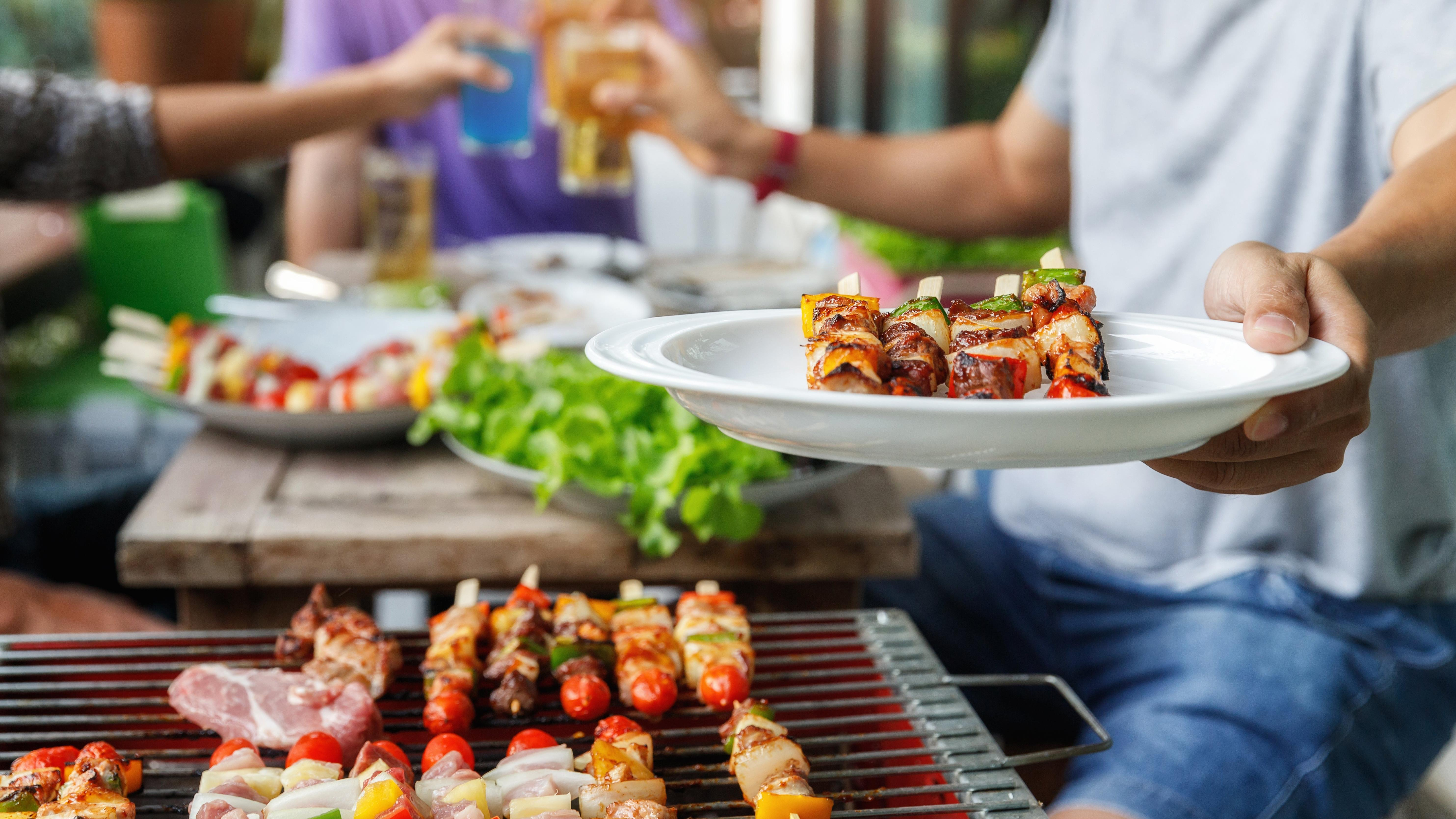How Not To Give Your Cookout Guests Food Poisoning
The last thing you want is for your barbecue to make people sick.
There's nothing worse than accidentally making your friends sick with a meal. Whether it's because of undercooked meat, a bad batch of spinach, or something else beyond your control, it's just not a great look as the host of an event. And if your celebration is in the form of an outdoor summer cookout, there are even more dangers at play that could cause your guests to spew. Luckily, though, with a little guidance from our friends at the Food and Drug Administration, it's easy to avoid some common snafus.
The best way to use your cooler
If you're transferring your food from one location to another, say a park to grill or have a picnic, it's important to keep your cooler organized to avoid cross-contamination. Cold foods should be kept in one cooler as cold as possible—the sweet spot is 40 degrees fahrenheit or colder, just like your fridge at home. Any raw meats or seafood that you want to keep cold should be individually wrapped so they're not touching any other items. All produce should be thoroughly washed before being placed in the coolers.
Keep drinks and other items like condiments that people might be reaching for often in a separate cooler. Every time you open and shut that lid, you risk raising the temperature of whatever's in the cooler, creeping closer to the danger zone for perishable items. If any item is in that zone (40-140 degrees) for two hours or more, it's safest to just toss it.
It's important to note: coolers are created to keep hot air out, not necessarily cold air in, so the temperature inside the cooler can fluctuate wildly throughout the day as that cool air escapes and ice melts. Keeping a thermometer on hand will help you avoid any catastrophes.
Grilling safety tips
Before you even hit the grill, marinate your meats in the refrigerator. This will keep your meat from getting to a dangerous temperature or even partially cooking from the acid in a marinade.
Once you're putting that meat on the grill, use a thermometer early and often. Grilling times fluctuate from meat to meat and grill to grill depending on where you place your meat, coals versus gas heat, the amount of marinade or breading on the meat, etc. Don't leave it to chance or fully trust a recipe without checking the temperature yourself.
Toss any plates or utensils that you used to put that raw meat on the grill and start fresh once it starts cooking. No one wants to accidentally load up their burgers and mashed potatoes on a salmonella-lined paper plate.
Once meat is cooked, keep it hot. This is where an extra, non-cold cooler can come in handy, as staff writer Dennis Lee explains:
Barbecue enthusiasts line them with a towel, and gently place their meat inside, which should be wrapped in foil or butcher paper. The meat will sit without dropping the temp like a brick, which is important because it's essentially still in the process of cooking by using carryover heat.
Before serving, make sure nothing from the grill or a marinade brush or even a nearby tree has made its way into your food. Foreign objects don't digest well.
The FDA’s four simple steps for safe food handling
There are a lot of specifics to consider for outdoor food safety, but just remember these four touchstones and you'll be set.
- Clean: There can never be enough cleaning, wiping down of utensils, washing of hands and surfaces, scrubbing of vegetables.
- Separate: If you're not sure if two different ingredients or dishes should be touching, just go ahead and separate them either by individually wrapping or placing in separate containers. This is your best bet for avoiding any cross contamination, especially if someone you're feeding has a food allergy.
- Cook: Check those temperatures! Make sure the cook is to the exact temperature you want and that nothing that shouldn't be raw is going out under.
- Chill: Keep those cold foods cold. It's really that simple.
Trust me, you don't want to be hosting the barbecue that everyone's afraid to attend because of what happened last year. Keep your guests full and safe and everyone will be talking about your cookout for years to come, in a good way.
